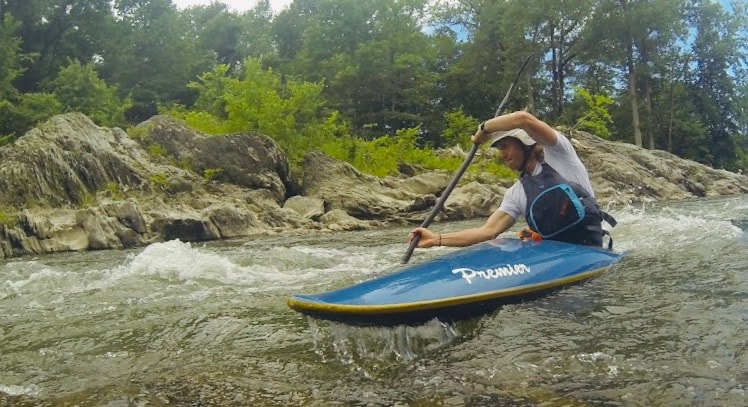|
Rhetorical questions/comments below are aimed at initiating thoughts and reflection.
Paddling: Identifying whether one's performance of a skill/maneuver was effective is usually straightforward; was the desired outcome met, yes or no? Once one has identified how to effectively perform the skill or maneuver, it's in my opinion worth spending time focusing on efficiency. How do you define "efficient" paddling? What does "efficient" look like? What does it sound like? What does it feel like? Once you've felt "efficiency", can you chase that feeling to repeat it? How do you define efficiency in regard to specific skills and maneuvers? Answering these questions will undoubtedly help in developing/fine tuning one's mental model of the skills and maneuvers that we use while paddling. Instruction, Teaching, and Coaching: Now consider taking the content and points from above and change your perspective and focus from your own paddling to the role of a paddling instructor or coach. As paddlesport instructors, in order to truly make sense of a performance and be able to offer meaningful feedback (among other things), we should have clear mental models for what goes into that skill or maneuver. Getting into the "weeds" and unpacking what goes into a particular skill or maneuver can be daunting (or at least it can be for me). For this reason having some sort of a framework to assist in this process can be very helpful. Some years ago Todd Johnstone-Wright introduced the "T. T. P. P. E. E." model to me as a tool for understanding the "demands" of a skill or maneuver. This tool has assisted me in planning, observation and analysis, formulating feedback, etc. T. T. P. P. E. E: Tactical - Technical - Physical - Psychological - Environment - Equipment While I believe that having clarity around your own mental models is an essential part of being an effective instructor or coach, these mental models should also be informed by science. As my friend and colleague, Chris Wing, has said (paraphrasing), "people should be able to convey biomechanics in their own words, but it has to embrace the underlying framework of science." In essence, it's my view that we can have our own opinions, but in order to be informed and accurate, they should be based on the biomechanics and physics of our sport. Hope this info finds folks well, and that at the very least it prompts a bit of reflection. Happy paddling.
0 Comments
Leave a Reply. |
